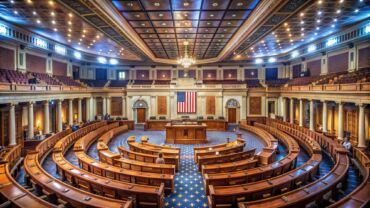Torres v. Starbucks Corp., 2021 WL 964219 (M.D. Fla. 2021)
An employee and another employee’s spouse sued the employer in this case in a proposed class action lawsuit, seeking damages and an injunction because the employer provided them deficient COBRA election notices. The employer filed a motion to compel arbitration, arguing that the lawsuit violated agreements that required individual arbitration of claims arising from the employer’s group health plan. According to the employer, the employees had accepted the arbitration agreement as a condition of employment and the spouse was a third-party beneficiary of the agreement, so both the employee and the spouse in this case were required to arbitrate. The employee consented to arbitrate, but the spouse did not.
The spouse contended that he was not a party to the arbitration agreement and never agreed to arbitrate his COBRA claims. The employer responded that the agreement covered the spouse’s COBRA claims under a theory of equitable estoppel, which precludes a party from claiming the benefits of some of the provisions of a contract while simultaneously attempting to avoid the burdens that other provisions of the contract impose. The spouse countered that his claims were not premised on the arbitration agreement, but on a deficient COBRA notice and his rights under the COBRA statute. He also claimed he could not be bound by the arbitration agreement as a third-party beneficiary because applicable state law does not permit two parties to bind a third—without the third party’s agreement—merely by conferring a benefit on the third party. The court agreed. Pointing out that arbitration is a matter of consent rather than coercion, the court held that the employer could not compel the spouse to arbitrate claims that were premised on his own statutory rights, either as a third-party beneficiary or under equitable estoppel.
EBIA Comment: At least one other court has reached a different conclusion on this issue. For instance, one court ruled that an employee who had agreed to arbitrate all employment disputes was required to arbitrate his COBRA claims because ERISA does not affect the Federal Arbitration Act (which generally requires enforcement of arbitration agreements). That court also held that COBRA claims of the employee’s spouse were “derivative” of the employee’s claims and were likewise subject to arbitration. Note also that the DOL’s claim regulations expressly approve the use of arbitration and other dispute resolution mechanisms as part of the appeals procedures applicable to group health plan claims, so long as the procedures comply with certain limitations and safeguards. For more information, see EBIA’s COBRA manual at Section XXV.H (“Procedural Issues in COBRA Lawsuits Under ERISA”), and EBIA’s ERISA Compliance manual at Section XXXIV.J.2 (“Mandatory Arbitration May Not Be Binding or Require Cost-Sharing”). You may also be interested in our upcoming webinar “Another COBRA Subsidy! Compliance Steps to Take Immediately” (live on 4/7/2021).
Contributing Editors: EBIA Staff.







